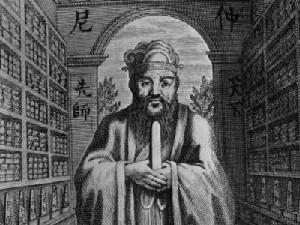Confucius, China’s great philosopher and teacher two and half millennia ago, had numerous students. Many of them came from afar to the Kingdom of Lu to learn from him. Mr. Chen Kang was among them.
Chen Kang was from the Kingdom of Chen. Because he was young and was a newcomer, he did not have the opportunity to listen to Confucius’s teachings one on one.
Oversensitive by nature, Chen Kang thought that Confucius did not pay attention to him because he was not from the Kingdom of Lu. Although Confucius seemed to treat all students the same during his lectures, Chen Kang still thought that Confucius did not care about him.
One day, Chen Kang asked Confucius’s son, Bo Yu, “Did your father give you any special teachings?”
Bo Yu thought a moment and said, “No. If you really want to know, he did give me instructions twice. Once, my father stood alone. When I walked quickly past the courtyard, he asked me, ‘Have you learned The Book of Poetry?’ I replied, ‘No, not yet.’ My father said, “How would you be able to respond properly in discussions if you haven’t learned the poems?' So I went back to study The Book of Poetry. Another time, my father was again standing by himself in the courtyard. I passed by him, and he asked me, ‘Have you studied The Records of Ritual?’ I replied, ‘I haven’t.’ My father said, ‘How would you be able to hold your stand in society if you haven’t studied the rituals well?’ So I went back to study The Records of Ritual. These are the two times that I received his teachings one on one.”
On hearing this Chen Kang was delighted and said, “I really have gained a lot today. I only asked him one thing but learned three: I should study The Book of Poetry and The Records of Ritual, and I have learned that a noble man is impartial even towards his own son.”
Source: Adapted from Lun Yu, or Analects of Confucius, a record of the words and acts of Confucius and his disciples, as well as the discussions they held.





